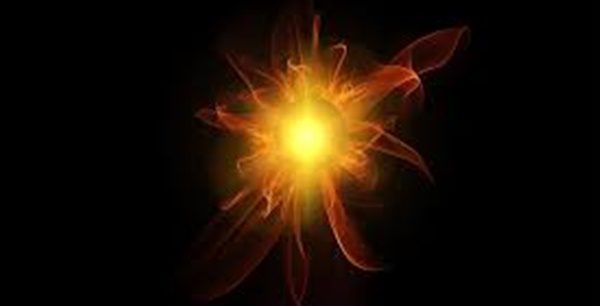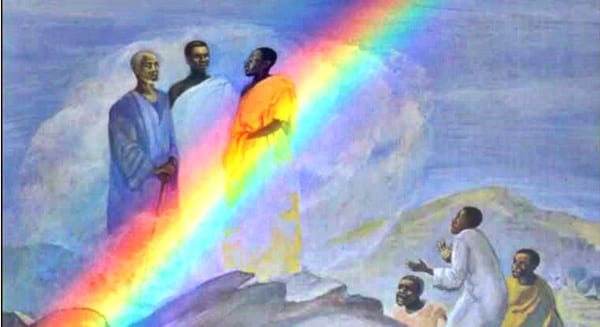
Leshanah tovah tikateiv veteichateim! May you be inscribed and sealed for a good year!
Like its secular counterpart, New Year’s Day, Rosh Hashanah is a time to make resolutions, solemn commitments to strengthen our faith and character. For Christians wishing to stand in solidarity with our Jewish sisters and brothers today, the natural place to start is to repent of violence, especially violence against Jews throughout history continuing to today, and to make a resolution for continued reconciliation. The tragedy of Crusades and pogroms, culminating in their ugliest manifestation in the Holocaust but subtly pervading Christian culture in innumerable instances of anti-Semitism, is something Christians cannot afford to ignore or forget. The underlying sin beneath such sickness of heart and mind is the satanic principal of blame that turns the Jewish people into the scapegoats of humanity when it accuses them of putting Jesus to death on the cross. Such a misperception betrays the symbolism of the cross, which is that all humanity, every one of us, is responsible for unwittingly victimizing and hoisting blame onto others, and that God is found not in the triumphant but in the victim. Furthermore, it rejects the tradition that nurtured the thoroughly Jewish Jesus and the foundation upon which our faith in the nonviolent Love of God is grounded. For Christians reading this, being disgusted by the violence that has harmed so many people for so long is just the beginning. We must also engage daily in the work of reconciliation, which means deepening our understanding in order to build friendships. For me, that means deepening my understanding of Judaism and Hebrew Scripture not only as an integral part of my faith, but as a metanarrative of human history, connecting me not only with my Jewish brothers and sisters but with all people.
That process includes learning about Rosh Hashanah itself. Until I began to do the research for this article, all I knew was that it is the Jewish New Year. The articles I have read are merely appetizers, and now I’m looking for literature to take me deeper into Jewish philosophy and theology. But what I’ve learned so far from chabad.org is enough to fascinate me:
Rosh Hashanah … emphasizes the special relationship between G‑d and humanity: our dependence upon G‑d as our creator and sustainer, and G‑d’s dependence upon us as the ones who make His presence known and felt in His world. …[T]his is also the day we proclaim G‑d King of the Universe. The Kabbalists teach that the continued existence of the universe is dependent upon the renewal of the divine desire for a world when we accept G‑d’s kingship each year on Rosh Hashanah.
Continued existence depends on the renewal of divine desire for the world. This statement cuts to the heart of the Girardian hermeneutic — the lens of God’s nonviolent love through which we understand scripture and seek meaning in the world — that we seek to proclaim at the Raven Foundation. This lens is indebted to Jewish tradition as expressed in the Hebrew Bible and the rich interpretation of rabbis and scholars and believers throughout history wrestling with their faith like Jacob in the Jabbok.
God’s desire for the world, God’s creative love overflowing into stars and rocks and trees and animals and all of us, is the foundation upon which we exist and grow and evolve. But we fail to trust this love, and in doing so we fail to live up to our end of our relationship with the Creator. For we cannot glorify God’s love if we cannot trust in it. Coming to trust this love is the struggle recorded in Jewish tradition. The Hebrew Bible is a “text in travail,” the story of humanity’s history of coming to understand God and each other, with plenty of stumbling and correction along the way. It can be understood in terms of the contrast between God’s beneficent, self-giving desire and the human twisting of desire into an instrument of self-promotion at the expense of others.
The article quoted above goes on to describe Rosh Hashanah as the birthday of Adam and Eve, and the anniversary of humanity’s first sin. We can understand this sin in terms of desire thwarted, trust disrupted, Love interrupted. The serpent can be seen as envy — desire for oneself over and against another — personified and whispered into the hearts of our first parents. God gave to us humans in our infancy the world for a playground, a joyful place, to be cared for and enjoyed in perfect Love. All of creation was pronounced good before the thought of being like God and knowing good from evil entered the minds of Adam and Eve. Suddenly, being made very good, in the image of God, was not enough, and the notion that evil could even exist was born. It was as if a nagging suspicion that God could desire something less than wonderful for God’s own creatures was born in Adam and Eve that day. More than mere disobedience, eating of the tree of knowledge of good and evil was a breaking of trust in God’s self-giving love. Subsequent sins can be traced to that lack of trust in God’s life-giving character. The notion that God could be less than Love has distorted God’s image in the world by thwarting God’s image-bearers, us.
A correction to our misunderstanding of God as a fearful, withholding deity is found in the Akedah, the story of the binding of Isaac, which is also said to have taken place on Rosh Hashanah. The fear of a withholding deity had manifested in religious cultures built upon an economy of exchange – “I give in order to receive” – or sacrifice. In a fearful world of diseases, tribal feuds, and scarce resources, the idea of appeasing an angry god for a sense of security was not far-fetched. Belief in a god who would ask for the sacrifice of one’s child was normal. Abraham, who had been called out from his tribe and family, was still coming to know the one Creator God who stands apart from the gods of scarcity, retribution and fear. So the thought that God demanded his son Isaac as sacrifice, while appalling to us, might have been expected, though certainly not welcomed, by Abraham.
But when God stays Abraham’s hand, a clear message is given. The fearsome god who demands sacrifice is not the God of Israel, not the God of the all creation, who needs nothing but rather provides the whole world for us. The message will later be reinforced by the prophets in whose tradition Jesus follows, particularly Hosea, who claims that God desires “mercy, not sacrifice.”
The parallel between Adam and Eve and Abraham and Isaac extends beyond the usual emphasis on the first humans’ disobedience contrasted with Abraham’s willingness to follow God’s command. It is a story of God’s proactive reconciliation, reestablishing trust and restoring the faith of a people that had been swayed by fear. Through Abraham, God was to bless the whole world, and the rejection of human sacrifice was a message to a violent world that God was much more loving and compassionate than they had imagined. It takes time to come to faith in such a God, learning through mistakes and consequences, constantly tempted to fall back on fear and the logic of tit-for-tat exchange and retribution. The Jewish scriptures honestly record human misunderstandings of God as well as genuine revelation, giving not only Jews but all of us a record of our evolving humanity. They bear witness to sacred relationship between the perfectly loving, gracious, generous God and his fearful, mistrusting but divinely-sealed image-bearers. We owe them our gratitude.
If the Hebrew Scripture is a “text in travail,” then all of us children of Abraham — Jews, Christians, and Muslims alike — are a people in travail, struggling to overcome our mortal fears that lock us in sin, striving to better magnify the love of the God. We glorify God by committing ourselves to reconciliation and peacemaking. So again, on this New Year’s day, I commit myself to learning about and renouncing the evil done to my Jewish brothers and sisters in the name of Jesus. I acknowledge my own indebtedness to Judaism, of which I am becoming more aware every day. The scapegoating of Jews by Christians is a misunderstanding of Judaism and Christianity that reverses the trajectory of the Hebrew Bible moving from sacrifice to mercy, a trajectory implied in the remembrance of both Adam and Abraham on Rosh Hashanah.
As I join my Jewish brothers and sisters in eating apples dipped in honey to symbolize a sweet new year — because yum — I reiterate today’s blessing. May we all be inscribed with compassion and sealed in trust in the loving God of all of us. Shalom and Amen.











